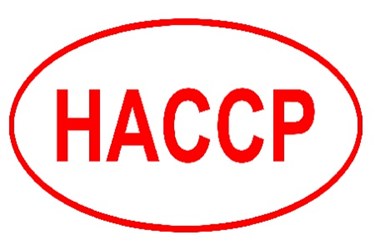HACCP: Who Do You Contact When A Recall Is Required?
By Laurel Maloy, contributing writer, Food Online

A poll of every facility would probably have very few admitting that its contact list is complete and accurate. Can you measure up to the FDA’s expectations?
Food processors and manufacturers have placed heavy importance on Hazard Analysis and Critical Control Points (HACCP) for years. But, as time goes by, practices and protocols can be neglected. Just last week, Food Online posted the 3 Fundamentals of Handling a Food Recall, providing often-overlooked basics in the event of a food-related emergency. The Food Safety Modernization Act (FSMA) requires companies to have a food safety plan, which includes ways in which your product can be intentionally or unintentionally adulterated. It also requires an up-to-date contact list and procedures be put in place for tracing every single raw product or ingredient back to its source. The last thing you want to do is to draw the attention of the FDA because your facility was unable to respond to the need for a food recall adequately. Inaction, in this regard, will put your company on the FDA’s most watched list, possibly for years to come.
It’s important to remember one small, albeit highly critical, portion of your food recall plan that is often overlooked. Most facilities are fairly certain all is in order, until they actually have to implement a food recall. It’s then that the lack of attention to detail and inconsistent recordkeeping is discovered, leaving everyone scrambling to get the necessary information and to contact the right people, under the watchful eyes of the FDA.
Included in your HACCP plan should be a schedule for updating this information. A good starting place is to draft a letter or email to all of your suppliers asking for their help in keeping your records up to date. Simply ask them to notify you in the event of a change to the contact personnel regarding a recall. As new suppliers are added, make this a part of your contract with them. However, don’t count on that happening — some will and some won’t, and that is no excuse for not having that information updated.
As part of your HACCP plan, assign someone to call all of the people, upwards and downwards in your facility’s supply chain. This should include all raw or processed ingredient suppliers, all chemical suppliers, packagers, shippers, warehousers, and retailers. Some of these contacts may not seem obvious; however, anyone above or below you in the supply chain can potentially be a critical element. Your facility can potentially discover an adulterant or pathogen which did not originate with you, or you may need to keep an adulterated product from entering commerce. A quick and seamless response to the necessity for a recall can potentially save millions of dollars and may even keep negative press at bay.
Got imports? The governmental contacts are ever changing, with the requirements varying from country to country. For food recall governmental notification in the U.S.A, click here; notice the links to the regions just below the heading. It’s important to know the region you are located in. You can also search for that information on the internet. For example, simply conduct and Internet search for “conducting a food recall Australia,” to find that country’s food safety contacts, though the best way may be to ask your importer. If your supplier cannot answer that question, then they may not have the necessary protocols in place. That could be a red flag to doing business with that particular company.
For instance, if you run a search for the example, you will find out that there are different contacts for the state or territory. If you don’t know that information, it could take hours, or even days, to find the right contact, especially when dealing with different time zones. Australia has what are called food recall action officers for industry contact, and the local food enforcement agency for consumers to contact. Each country will have different names for the offices and officers responsible for food recalls. It is your responsibility to know this.
One other thing to consider is international calling. Not only does the person(s) responsible for verifying the information have to have access, but so does any person who may be responsible for implementing or helping to implement a recall. In fact, simply not knowing how to dial internationally can be problematic.
When drafting or updating your contact list, be sure to think of every contingency. Do you know the port those goods travel in and out of? Due diligence requires that you do, and that you know how to contact the necessary individuals. Have you got the number for the local law enforcement or FBI Office in the event of intentional adulteration? Who, in your facility, has the authority to halt production when an adulterant or pathogen is discovered? Finally, when it comes to contingencies, be sure to include enough people in the loop to preclude absences or vacations. When stopping food from entering commerce is critical, the last thing you want is to realize that so and so is on vacation or hospitalized, and no one else has a clue.
The HACCP Mentor says this is not only absolutely necessary, but also simple to achieve. However, it may be more challenging than you think. Having all this information up to date and on hand is unlikely. Further, it could take an entire week to gather and compile all of the information, then integrate it into your company’s HACCP plan, and to delegate where needed. Are you up for the challenge?
